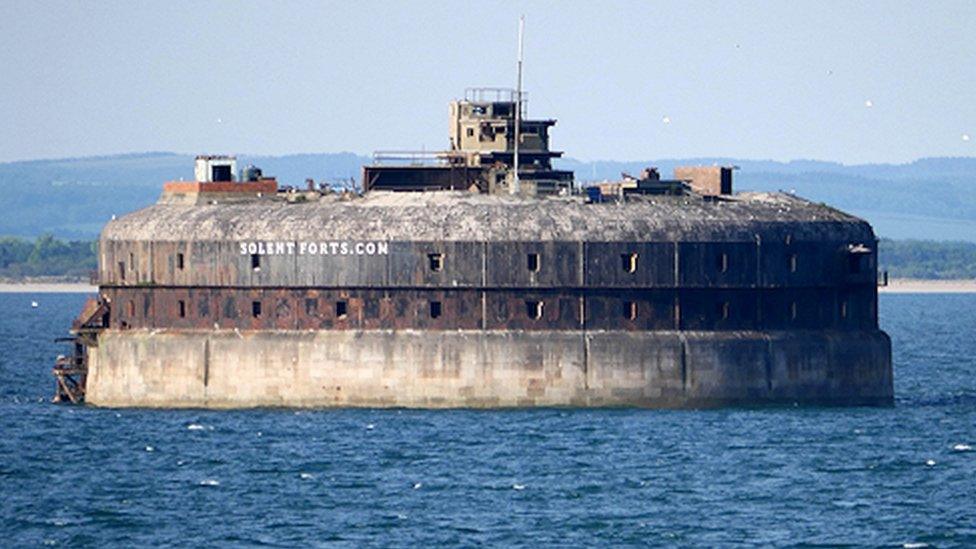WW1 Bull Sand Fort in Humber sold for nearly £500k at auction
- Published
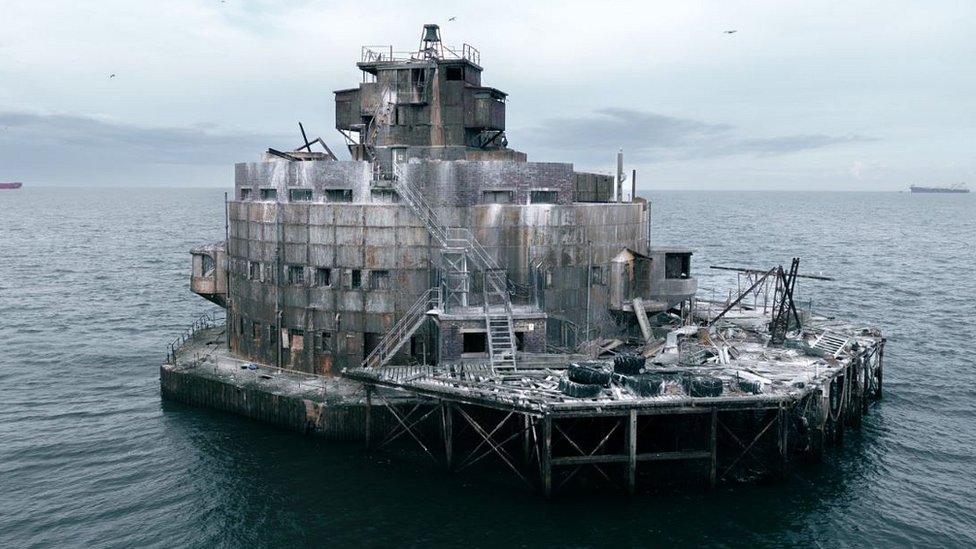
Whoever bought Bull Sand Fort at auction would need an imaginative project in mind, according to the auctioneers
An abandoned armour-plated World War One fort in the Humber estuary has been sold for £490,000 at auction.
Bull Sand Fort, built between 1915 and 1919, sits three miles (4.8km) from Grimsby and can only be reached by boat or helicopter.
Agents Savills said there were "a lot of bidders" for the building, which had a starting price of £50,000.
Its sister fort on Haile Sand sold at auction in 2018 for £117,000. That had a guide price of £90,000.
Steven Morish, from Savills, previously said Bull Sand required "an imaginative buyer with a project in mind".
He had described the structure as "exciting and unique" and said suggestions for its future use included "a high-end hotel, restaurant, Airbnb, Grand Designs-style personal dwelling, retreat or a tourist attraction".
The fort, which is big enough to house 200 people, was reinforced with concrete and fitted with 12in (30cm) armour, designed to withstand gunfire from battleships.
It was built, along with its smaller companion fort on Haile Sand, to protect the sea entrance to the Humber estuary, but both were completed after WW1 ended.
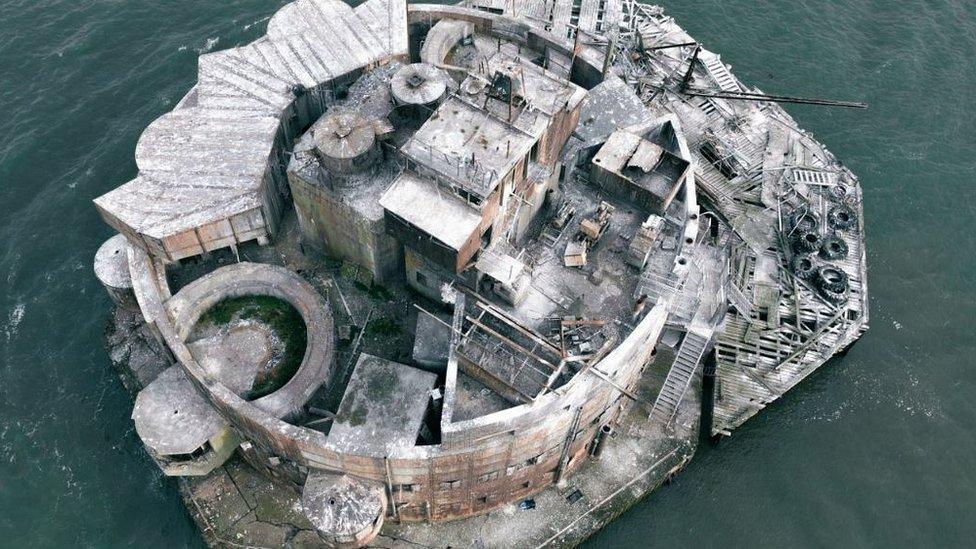
Bull Sand Fort was built to defend against battleship attack during WWI, but was finished after the war ended
A steel mesh was stretched between the forts across the mouth of the estuary to prevent enemy submarines getting to the important ports of Hull and Grimsby.
Dr Robb Robinson, honorary research fellow at the Blaydes Maritime Centre at the University of Hull, said the forts were a reminder of a "long ago age of maritime conflict, built when Britain's east coast was on the maritime front line".
He said the fort was "manned up until the late 1950s", and the building would be a bit "short on mod cons and a bit bracing" for anyone to live there.

Follow BBC East Yorkshire and Lincolnshire on Facebook, external, Twitter, external, and Instagram, external. Send your story ideas to yorkslincs.news@bbc.co.uk, external.
Related topics
- Published15 July 2022
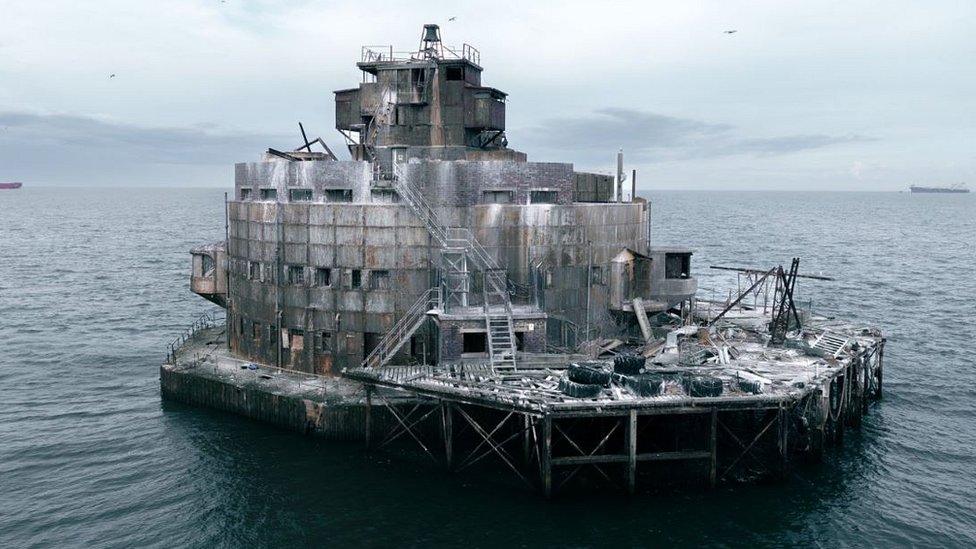
- Published1 November 2018
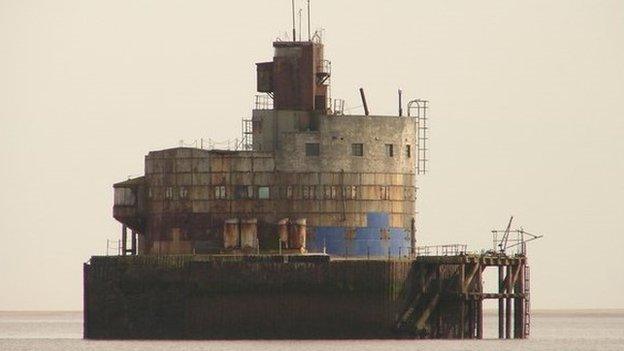
- Published19 August 2020
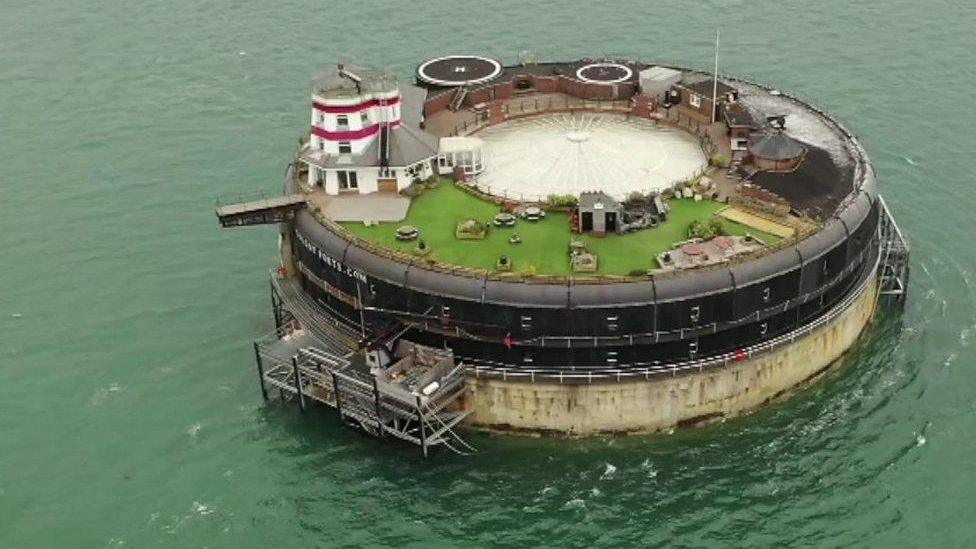
- Published28 October 2021
